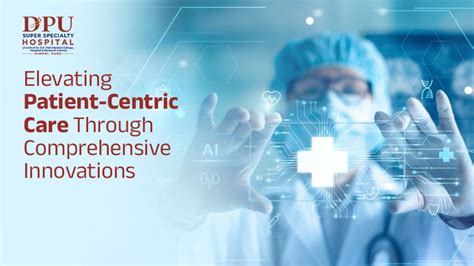The postpartum period is a critical phase in a woman's life, marked by significant physical, emotional, and psychological changes. However, despite its importance, postpartum care has traditionally been fragmented, inadequate, and often neglected. Recent advances in technology have paved the way for innovative, patient-centric solutions that are revolutionizing the way we approach postpartum care.

The Current State of Postpartum Care
The postpartum period is often characterized by a lack of comprehensive care, leaving new mothers feeling isolated, anxious, and uncertain about their health and well-being. Traditional postpartum care has focused primarily on the medical aspects of childbirth, with little attention paid to the emotional, social, and psychological needs of new mothers.
Challenges in Postpartum Care
- Lack of access to healthcare services: Many women, particularly those in rural or underserved areas, face significant barriers in accessing healthcare services during the postpartum period.
- Inadequate support systems: New mothers often lack access to supportive networks, leaving them feeling isolated and alone.
- Insufficient education and resources: Women may not receive adequate education and resources on postpartum care, leading to misunderstandings and anxiety.
Emergence of Patient-Centric Tech Solutions
Recent advances in technology have led to the development of innovative, patient-centric solutions that address the complex needs of new mothers during the postpartum period. These solutions prioritize the unique needs and experiences of each woman, providing personalized support, education, and resources.

Examples of Patient-Centric Tech Solutions
- Mobile health applications: Mobile apps, such as pregnancy tracking apps, provide women with access to personalized health information, educational resources, and supportive communities.
- Telehealth platforms: Telehealth platforms enable women to connect with healthcare providers remotely, reducing barriers to access and improving the quality of care.
- Artificial intelligence-powered chatbots: AI-powered chatbots offer women personalized support and guidance, answering questions and providing reassurance during the postpartum period.
Benefits of Patient-Centric Tech Solutions
The integration of patient-centric tech solutions into postpartum care has numerous benefits for new mothers, including:
Improved Health Outcomes
- Enhanced monitoring and tracking: Patient-centric tech solutions enable healthcare providers to monitor women's health more effectively, identifying potential complications earlier.
- Personalized education and resources: Women receive tailored education and resources, empowering them to make informed decisions about their health.
Increased Access to Care
- Reduced barriers to access: Patient-centric tech solutions expand access to healthcare services, particularly for women in rural or underserved areas.
- Increased convenience: Women can access care remotely, reducing the need for in-person visits and improving overall convenience.
Enhanced Support and Community
- Connectivity and community: Patient-centric tech solutions provide women with access to supportive networks and communities, reducing feelings of isolation and loneliness.
- Emotional support: Women receive emotional support and guidance, helping to alleviate anxiety and stress during the postpartum period.
Future Directions for Patient-Centric Tech Solutions
As technology continues to evolve, we can expect to see even more innovative, patient-centric solutions emerge in the field of postpartum care. Some potential future directions include:
Integration with Wearable Devices
- Wearable devices: Integration with wearable devices, such as fitness trackers or smartwatches, could enable women to track their physical and emotional health more effectively.
- Predictive analytics: Predictive analytics could be used to identify potential complications, enabling healthcare providers to intervene earlier.
Expansion of Telehealth Services
- Telehealth platforms: Telehealth platforms could be expanded to include more comprehensive services, such as mental health support and lactation consulting.
- Remote monitoring: Remote monitoring could be used to track women's health more effectively, reducing the need for in-person visits.






Call to Action
As we move forward in this exciting era of technological innovation, it is essential that we prioritize the needs and experiences of new mothers. By embracing patient-centric tech solutions, we can revolutionize postpartum care, improving health outcomes, increasing access to care, and enhancing support and community.
We invite you to join the conversation and share your thoughts on the future of postpartum care. How can we work together to create a more compassionate, supportive, and technologically advanced system of care for new mothers?
What is patient-centric tech?
+Patient-centric tech refers to technology that prioritizes the unique needs and experiences of each individual patient.
How can patient-centric tech solutions improve postpartum care?
+Patient-centric tech solutions can improve postpartum care by providing women with personalized support, education, and resources, as well as increasing access to care and enhancing support and community.
What are some examples of patient-centric tech solutions in postpartum care?
+Examples of patient-centric tech solutions in postpartum care include mobile health applications, telehealth platforms, and artificial intelligence-powered chatbots.
